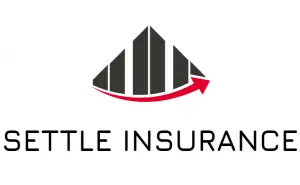“This post may contain affiliate links, if you click a link we may earn a commission if you purchase from that merchant.”
It’s ultimately up to you how much you put down on a car, although it will mostly depend on whether you’re buying new or used. If you’re thinking about buying a car in the future, you might be wondering how much of a deposit you should make. Should your down payment be different depending on whether you’re buying a new or used car?
In the end, the amount of a down payment you make is usually determined by you, your unique situation, and the automobile loan you qualify for.
Starting with an auto loan calculator and analyzing what you should consider when deciding on an amount for a down payment on your next car is a fantastic place to start. If you want to make your down payment go further by shopping smart for your next car, shopping smarter will help your down payment purchasing power.
Table of Contents
Why you should put a large down payment on your next car?
For a variety of reasons, putting a high down payment on your next car is usually a good idea.
You Can Avoid Going Upside Down on Your Loan
A hefty down payment on a new car helps you build equity in the vehicle and avoid turning upside down on your loan when depreciation affects the value of your vehicle.
You Won’t Be Paying Your Loan as Long
A bigger down payment will result in a lesser outstanding balance. Because interest and monthly payments are determined based on the amount borrowed, a smaller loan means less money will be used to make interest and monthly payments.
Reducing your monthly payment and interest expenditure helps you to keep more of your monthly income for other purposes.
See also: How to Save Money on Auto Insurance
You Won’t Need Full Coverage Insurance If You Don’t Want It
Most lenders will compel you to keep full coverage insurance whether you want it or not when you finance a car. If you can’t afford to repair or replace your car after an accident, keeping collision and comprehensive insurance on it is usually a good idea.
However, if you’re financially secure and can replace a car without incurring significant financial hardship, these coverages may not be necessary. Some lenders may also ask you to pay for gap insurance, particularly if there’s a chance you’ll default on your automobile loan.
See also: Best Auto Insurance Companies of 2021
You May Get a Better Loan Rate
When evaluating the factors of your auto loan, certain car lenders examine the amount of your down payment. Assuming all other factors remain the same, a lender will see you as a smaller risk if your down payment is bigger.
The Reality: Put a Reasonable Down Payment on Your Next Car
So, how much should you put down on your next automobile?
The general guideline is that you should pay down at least 20% of the purchasing price of your next car. If you want to and can afford it, you can put down extra money to reduce your interest and monthly payments.
Unfortunately, the majority of people are unable to achieve this goal. According to Edmunds’ research of new and used automobile transactions in 2020, the average auto down payment was only 15%.
The Ideal: Buy Cars With Cash
People would not need vehicle loans in an ideal world. If you can make your present automobile last a little longer, it’s usually a good idea to keep it. You can pay off your current auto loan by keeping your automobile for longer. Once your current car loan is paid off, you may start putting the money you would have spent on your monthly car loan payment into savings account for your next automobile purchase.
It may be worth it even if you have to spend a modest amount of money on additional maintenance fees. You may still come out ahead if you don’t spend more money on repairs than the car is worth or your old monthly car payment.
You’ll have to crunch the figures to see whether restoring your existing car or buying a new one is the better option, but you should check before buying a new car just because your old one needs a minor repair.
If you can maintain your previous automobile for a long time, you might be able to pay cash for your next vehicle. When you pay cash for a car, you have a lot more financial options and the procedure is a lot easier.
Should You Ever Put Zero Down on a Car?
It’s only in exceptional circumstances that putting zero down on a car makes sense. You may put your money in a savings account that earns interest if you have the complete amount to pay for the automobile in cash but instead acquire a 0% interest vehicle loan. Then you’ll be able to bank the interest while paying 0% on the auto loan, allowing you to make a profit.
This only works if you can ensure that you won’t spend the money you’ve set up for the automobile on anything else, which most people lack. As a result, it’s virtually always a wiser idea to simply put down as much money as your resources will allow without jeopardizing your emergency fund or other financial goals.
Finding an Affordable Car
Using a car buying service for new cars, such as Edmunds, or shopping for a discount on used cars at both dealerships and online classified websites, which Edmunds also offers, can help you find an affordable automobile.
The main focus of the new car purchase process should be on choosing the ideal car for you that fits within your budget and ensuring you obtain a fair price. New automobiles are commodities, and because a certain make and model is the same from dealership to dealership, it makes sense to shop around for the best bargain.
Things get a little trickier when you’re buying a secondhand car. Each used car is one-of-a-kind. To determine if an automobile is of good value, check its condition, mileage, age, and driving characteristics.
When purchasing a secondhand car, it is common practice to hire a mechanic to inspect the vehicle. You should also look over the vehicle’s historical record to see if any red flags are lying in plain sight.
See also: Factors that Affect Auto Insurance Premiums
Bottom Line
When deciding how much of a down payment you can and want to make, the general rule is to put down 20% of the car’s purchase price. Putting down a significant down payment on any car, regardless of which one you choose, is usually the smartest financial choice.


































